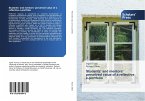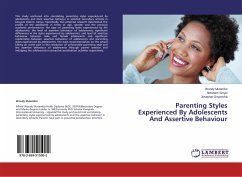The protection of environment is the solemn responsibility of every citizen of the country. The principle of inclusion in education requires that all types of students should get the opportunity of holistic education, which obviously includes citizenship training for the preservation of natural resources and social progress. The present study will not only clarify the relation among relevant variables but also develop new perspective on visual deprivation and environmentalism. The major objectives of the present study, are to find out the effect of types of educational institution , types of visual impairment and gender on locus of control (LOC), ecological value (utilisation and preservation) and environment related behaviour (ERB) of students with visual impairments. The study supported the theoretical under pinning of the importance of the psychological factors in developing ERB. The study has also wide implication as it indicates that inclusive policy adopted in general institution is more effective in the context of environmentalism.
Bitte wählen Sie Ihr Anliegen aus.
Rechnungen
Retourenschein anfordern
Bestellstatus
Storno








